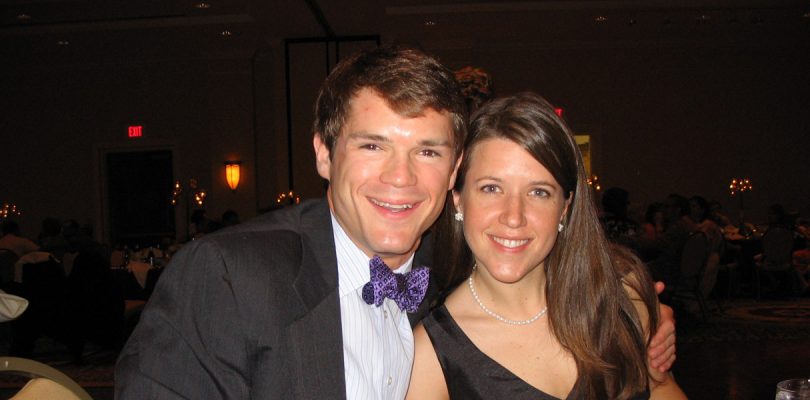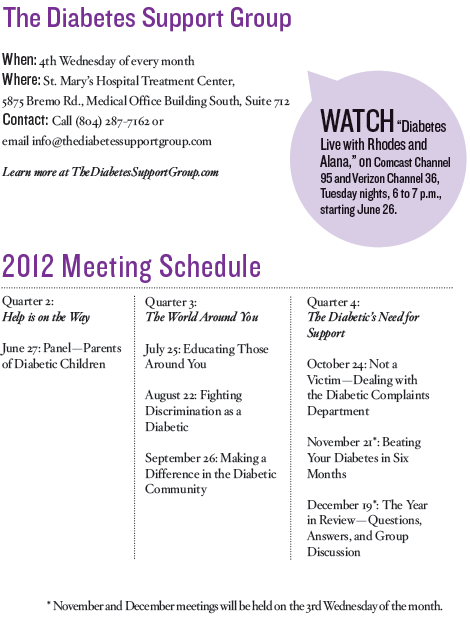Written by Lauren B. Gray
October 10, 1983, is a date Rhodes Ritenour will never forget. That was the day he was diagnosed with Type 1 diabetes—at the age of five. Alana, Ritenour’s wife of three years, has
heard the story more times than she
can count.
Ritenour quickly learned that diabetes cannot be confronted alone. Growing up, he relied on a support network comprised of his parents, providers, family, friends, educators and community members. However, after moving to Richmond in 2006, Ritenour realized that the area lacked a support group for diabetics that met on a regular basis. And the Ritenours weren’t the only ones affected: Of the nearly 131,000 diagnosed diabetics in the greater Richmond area, many lack adequate access to health education and services, according to Nancy Castrina, director of the American Diabetes Association’s (ADA) Central Virginia Office.
So, in 2010, with Ritenour serving as chairman of the board for the ADA’s local chapter, he and Alana founded The Diabetes Support Group under the banner of the ADA’s Family Link Program. The group has continued to grow, from about four regular attendees to about 20, and has expanded its reach in the community, with a contact base of about 250 people.
“We were motivated to create the support group by the void in greater Richmond of a place where those affected by diabetes could regularly turn for education, information, and inspiration,” says Ritenour. “From our first monthly meeting in January 2010, we have focused on the positive and proactive management of diabetes. We are not a group of victims. The experts we host and the discussions we have reiterate that we can fight and manage this disease together.”
The ADA’s Family Link Program is focused on connecting families of children with Type 1 diabetes; but the Ritenours’ mission has evolved over time to accommodate the needs of Type 2 diabetics as well. “With the profound increase of Type 2 diabetes in the United States, we feel compelled to work to help that audience too,” says Alana.
The Ritenours have been invited to host a six-week series of live shows on public access television. The show, “Diabetes Live with Rhodes and Alana,” begins in June and will focus on the positive and proactive management of diabetes.
“We hope to use our live shows to reach a broader audience—perhaps individuals affected by diabetes who are unaware of our support group or who cannot attend it,” says Ritenour. “We will host experts on diabetic topics and provide practical answers to questions from our live television audience.”
The typical format of the support group meetings, held monthly at the St. Mary’s Diabetes Treatment Center, is a presentation from a health or lifestyle professional, followed by a question-and-answer session. Past meetings have included presentations from endocrinologists, certified diabetic educators (CDEs), podiatrists and other diabetes experts. The group is also using social media tools such as Facebook and Twitter to connect members to the larger diabetic community and additional resources.


